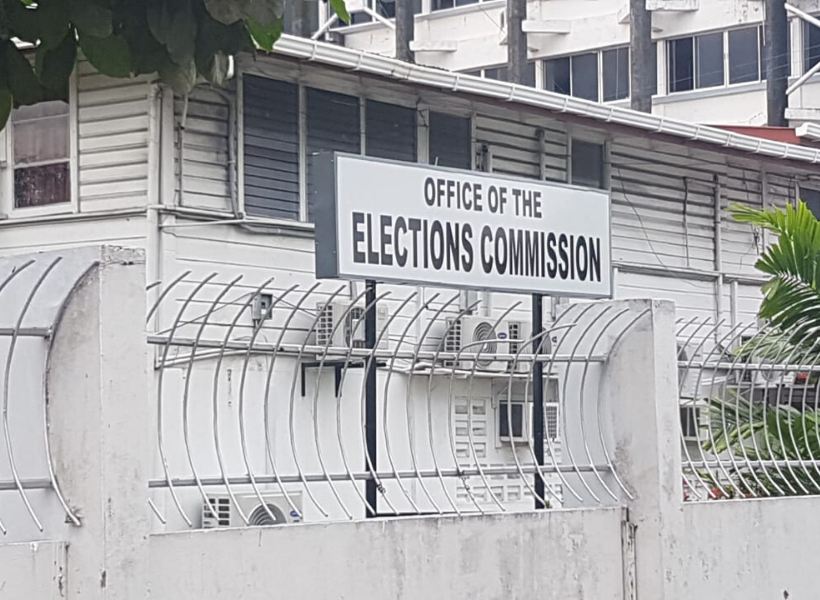The model Production Sharing Agreement (PSA) being pursued by the Energy Department will feature local content benchmarks to be achieved by oil companies as well as penalties for non-compliance, Petroleum Advisor to the Government, Mr. Matthew Wilks, has confirmed.
The Petroleum Advisor, speaking today with the Guyana Standard, noted that, indeed, it is common to see PSAs requiring companies to give preference to local goods and services and establish an open and competitive procurement process which provides adequate opportunity for suppliers to compete and report annually on their achievements. He stressed however that a “solid” PSA sets benchmarks and penalties for failure to comply with those obligations. He said that this is the direction Guyana needs to head in.
Further to this, Wilks noted that it would be in the country’s interest to have strict provisions with regard to the training of locals for the oil sector. He is of the view that future contracts should obligate all oil companies to train and give preference to Guyanese in their employment policies and to establish an annual programme to train personnel of the Government to undertake skilled and technical jobs. Wilks is also proposing that this become part of the laws for the oil sector.
Wilks said, “The Government will also need to provide a timetable of realistic benchmarks for employing local staff and services, and training local employees in future regulations and/or contracts. It will also have to carefully monitor companies’ compliance with their obligations and support companies to reach these benchmarks.”
Further to this, the Petroleum Advisor said that oil companies should be made to publish online, their local content records so that citizens and journalists can hold them accountable as well.
GUYANA’S LIMITED PROVISIONS
Chartered Accountant and Attorney-at-law, Christopher Ram, was one of the first local commentators to denounce the provisions for local content in the PSA that Guyana has with ExxonMobil. Ram has highlighted several aspects of the contract which deal with Local Content. He noted for example that Article 18 of the contract which deals with local content has been subject to a number of modifications when compared with the 1999 Agreement.
He said that one of the obvious changes one recognises is that the activities regarding local content will be carried out not by the contractor but by an operator appointed by the three companies making up the contractor. The three companies that make up the contractor ExxonMobil are Esso Exploration and Production Guyana Limited, CNOOC Nexen Petroleum Guyana Limited, and Hess Guyana Exploration Limited.
In respect of goods and services, Ram noted that Article 18 requires the operator to give preference to Guyanese goods and materials of quality and quantity, timely delivery, and competitive prices. However, when it comes to Guyanese sub-contractors, Ram was careful to highlight that the contract says that preference is to be given “if they are commercially competitive and meet financial and technical requirements”.
Furthermore, the lawyer points out that Article 18.2 requiring the contractor to establish tender procedures remains unchanged for the acquisition of goods, materials, and services which shall ensure that Guyanese suppliers and sub-contractors are given adequate opportunity to compete for the supply of goods and services. In this regard, Ram said that there is also a requirement in the petroleum agreement for the contractor to train Guyanese suppliers and sub-contractors in the procedures for participating in tenders and competing for contracts to be offered in the operations.
Ram further said that under the 1999 Agreement, “The old Article 18.3 required the contractor, within 90 days of the end of the year, to provide the Minister with a report outlining its achievements in utilising Guyanese resources during that calendar year. That has now been replaced in [Article] 18.4 with a provision that requires the contractor and the Minister (sic) to prepare a yearly plan for the utilisation of qualified Guyanese resources for the upcoming year.”
“Further, the sub-article requires the contractor and the Minister to meet and consider the effectiveness of the plan (which they have prepared!). Within thirty days of each half-year, the contractor is required to provide a report to the Minister outlining its achievements in utilising qualified Guyanese resources during the previous half-year and to make appropriate adjustments to the yearly plan to better accomplish the local content goal.”
The lawyer said that apart from the amateur drafting of this highly important article, it seems that, once again, Minister of Natural Resources Raphael Trotman has gone outside of the legislation which requires proposals on local content to be part of the application for a prospecting and a production license. Ram stressed that these licenses are usually issued on condition that such objectives are achieved.











